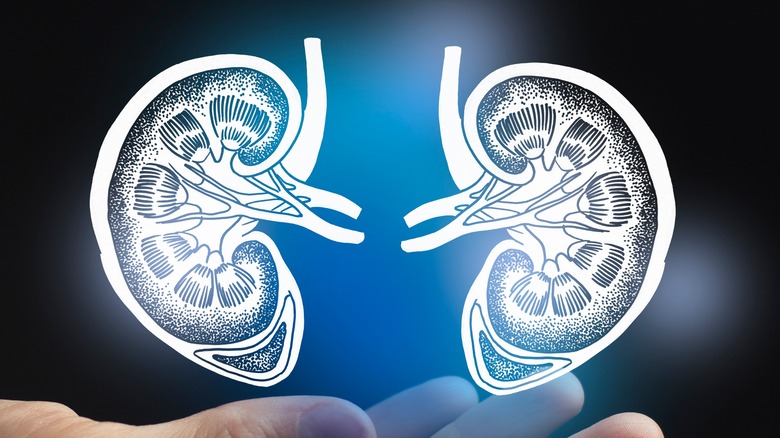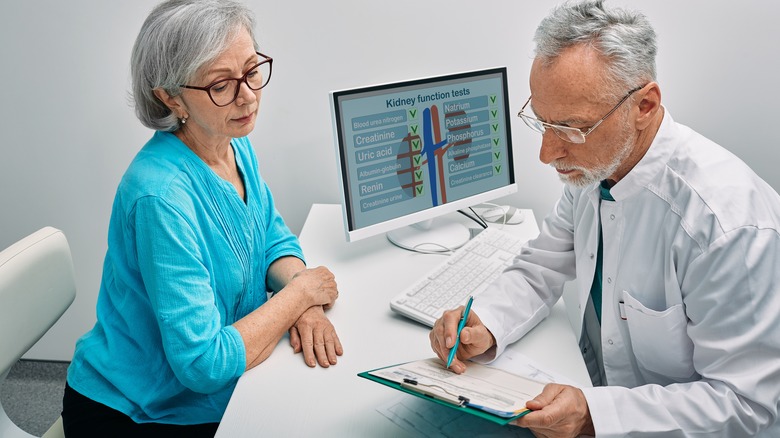What Happens To Our Kidneys As We Age?
Your kidneys play a critical role in your health because they filter waste, acid, and excess fluids from your body. According to the National Institute of Diabetes and Digestive and Kidney Diseases (NIDDK), our kidneys stay busy, filtering about a cup of blood (around 236 milliliters) every two minutes. This process keeps the amount of water, salt, and other minerals in the blood stable. The filtering units in kidneys are called nephrons, and within the nephrons are smaller filters called the glomerulus and tubule. The rate of kidney filtration is called a glomerular filtration rate (GFR), and doctors can measure it to determine the health of your kidneys (via the Cleveland Clinic).
As we age, our kidneys filter less. According to a 2017 report published in Advances in Chronic Kidney Disease, the GFR declines by about 6.3 milliliters every decade. As the kidneys become weaker, they can't remove as much waste, and that can result in toxins building up in the blood, per the Cleveland Clinic.
Kidney tissue decreases with age
Along with a decreased GFR, the amount of tissue in your kidneys diminishes over time. Less kidney tissue could lead to a drop in function. Nephrons are some of the tissue that decreases with age, which means it may take longer for the kidneys to filter waste. In addition, blood vessels in the kidneys can become hard and thick, which results in low kidney volume, per MedlinePlus.
Loss of kidney function leads to a risk of kidney disease in older people. The National Kidney Foundation reports that statistics from Johns Hopkins University suggest that 50% of the population over 75 have some form of kidney disease, resulting from loss of kidney function. Many older Americans don't realize that they are at risk for kidney failure until it is too late. This is because the few symptoms that are associated with the disease develop slowly and are not generally severe, according to the Urology Care Foundation.
Poor kidney function can lead to chronic kidney disease
When the kidneys no longer function properly, it often leads to chronic kidney disease (CKD). After your kidneys become irreversibly damaged, you will either need to undergo dialysis treatments or a kidney transplant. Some conditions can contribute to CKD, including type 1 or type 2 diabetes, high blood pressure, inherited kidney diseases, inflammation of the glomeruli or tubules in the kidneys, and recurring kidney infections. Risk factors for CKD include obesity, age, smoking, and overusing medications that can harm kidneys. Some symptoms of advanced kidney disease are nausea, vomiting, fatigue, a change in how often you urinate, swollen feet and ankles, and shortness of breath (via the Mayo Clinic).
There are several things you can do to keep your kidneys healthy, and one is staying active. You should also keep your blood pressure below 140/90 and manage your cholesterol. Other ways to support your kidneys are adding more fruits and vegetables to your diet and avoiding foods that are high in salt. In addition, follow all medication instructions, per the Centers for Disease Control and Prevention.



